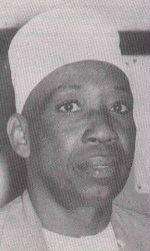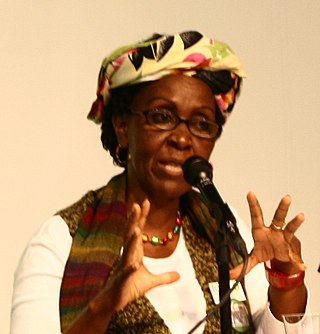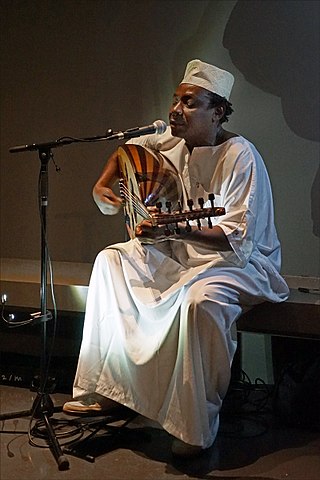
Iringa is a city in Tanzania with a population of 202,490 and situated at a latitude of 7.77°S and longitude of 35.69°E. The name is derived from the Hehe word lilinga, meaning fort. Iringa is the administrative capital of Iringa Region. Iringa Municipal Council is the administrative designation of the Municipality of Iringa. Iringa has been one of the coldest regions in Tanzania due to its geographical location but that has attracted a lot of tourists from colder regions abroad especially Western Europe. Iringa also hosts one of Africa’s largest national parks the Ruaha National Park.
Bediako Asare is a Ghanaian journalist and author, initially from Ghana. He began his career working on local newspapers, then relocated to Dar es Salaam, Tanzania in 1963, to help launch The Nationalist newspaper.

Ludewa District is one of six districts in the Njombe Region in Tanzania, East Africa. Prior to 2012, the district was one of the seven districts of Iringa Region. The town of Ludewa is the administrative seat of the district. A hospital is located in the city. The district is bordered to the north by the Njombe Rural District and Makete District, to the southeast by the Ruvuma Region and to the southwest by the country of Malawi across Lake Nyasa.

Shaaban bin Robert, also known as Shaaban Robert, was a Tanzanian poet, author, and essayist who supported the preservation of Tanzanian verse traditions. Robert is celebrated as one of the greatest Tanzanian Swahili thinkers, intellectuals and writers in East Africa and has been called "poet laureate of Swahili" and is also known as the "Father of Swahili." He is also honoured as the national poet.

Pwani Region is one of Tanzania's 31 administrative regions. The word "Pwani" in Swahili means the "coast". The regional capital is the town of Kibaha. The Region borders the Tanga Region to the north, Morogoro Region to the west, Lindi Region to the south, and surrounds Dar es Salaam Region to the east. The Indian Ocean also borders the region to its northeast and southeast. The region is home to Mafia Island, the Rufiji delta and Saadani National Park. The region is home to Bagamoyo town, a historical Swahili settlement, and the first colonial capital of German East Africa. According to the 2012 national census, the region had a population of 1,098,668, which was slightly lower than the pre-census projection of 1,110,917. From 2002 to 2012, the region's 2.2 percent average annual population growth rate was the seventeenth-highest in the country. It was also the 21st most densely populated region with 34 people per square kilometre., the region is slightly larger than Belgium.

Following Tanganyika's independence (1961) and unification with Zanzibar (1964), leading to the formation of the state of Tanzania, President Julius Nyerere emphasised a need to construct a national identity for the citizens of the new country. To achieve this, Nyerere provided what has been regarded by some commentators as one of the most successful cases of ethnic repression and identity transformation in Africa.
Imani Sanga is Professor of Music in the Department of Creative Arts, formerly called Department of Fine and Performing Arts, in the College of Humanities at the University of Dar es Salaam, Tanzania. He teaches courses in Ethnomusicology, Philosophy of Music, Composition and Choral Music. And he conducts the university choir.
Edwin Semzaba was a Tanzanian novelist, playwright, actor and director. He wrote his works mainly in Swahili. He taught in the Department of Fine and Performing Arts at the University of Dar es Salaam, Tanzania, where he taught, among other courses, creative writing and acting. He won the first award of East African Writers awarded by the Institute of Swahili Research for his novel Funke Bugebuge and the "grandchildren's adventure book writing competition" awarded by the Swedish Embassy in Tanzania (2007).

Mkombozi Commercial Bank Plc. is a commercial bank in Tanzania. It is licensed by Bank of Tanzania, the central bank and national banking regulator. Mkombozi is a Swahili word meaning Savior

The Askari Monument or Dar es Salaam African Memorial in Kivukoni Ward in Ilala District of Dar es Salaam, Tanzania, is a memorial to the askari who fought in the British campaign against the German Army in East Africa in World War I. It was unveiled in 1927. The monument is located at the centre of a roundabout on Samora Avenue at the perpendicular junction to Maktaba Street and Azikiwe Street, a place that reportedly also marks the exact centre of downtown Dar es Salaam.
Penina Muhando, also known as Penina Mlama, is a Tanzanian Kiswahili playwright, a theorist and practitioner of Theatre for Development in Tanzania.

Uwemba is a town and ward in Njombe District in the Iringa Region of the Tanzanian Southern Highlands. Uwemba has a big Benedictines monastery and Secondary school. Economic activities includes agriculture and business.

Elieshi Lema is a Tanzanian writer and publisher, also active in Tanzania's civil society.

Jokate Mwegelo is a Tanzanian politician and Secretary General of the Chama cha Mapinduzi’s Women’s Wing (UWT).
Farouk Mohamedhusein Tharia Topan is the director of the Swahili Centre at the Aga Khan University. He is a specialist in the language and literature of the Swahili people. He has taught at the University of Dar es Salaam, the Institute of Ismaili Studies, and the School of Oriental and African Studies.
May Lenna Balisidya Matteru was a Tanzanian author writing in the Swahili language.

The Tanzam Highway leads from Lusaka in Zambia to Dar es Salaam in Tanzania. The highway was built from 1968 to 1973 in several stages and was intended to provide seaport access for Zambia and to expand the transport options for Zambia, Malawi and the then Zaire.

Mohamed Issa Haji 'Matona is a Zanzibarian musician. He is a founder and the artistic director of Zanzibar's Dhow Countries Music Academy.

Sandra Aikaruwa Mushi is a Tanzanian writer, primarily of poetry and short stories.
Martha A. S. Qorro is a linguist and an associate professor at the Centre for Communication Studies of the University of Dar es Salaam, known for her research into the use of the Kiswahili language as preferable language of instruction in Tanzania, and the Iraqw language.













